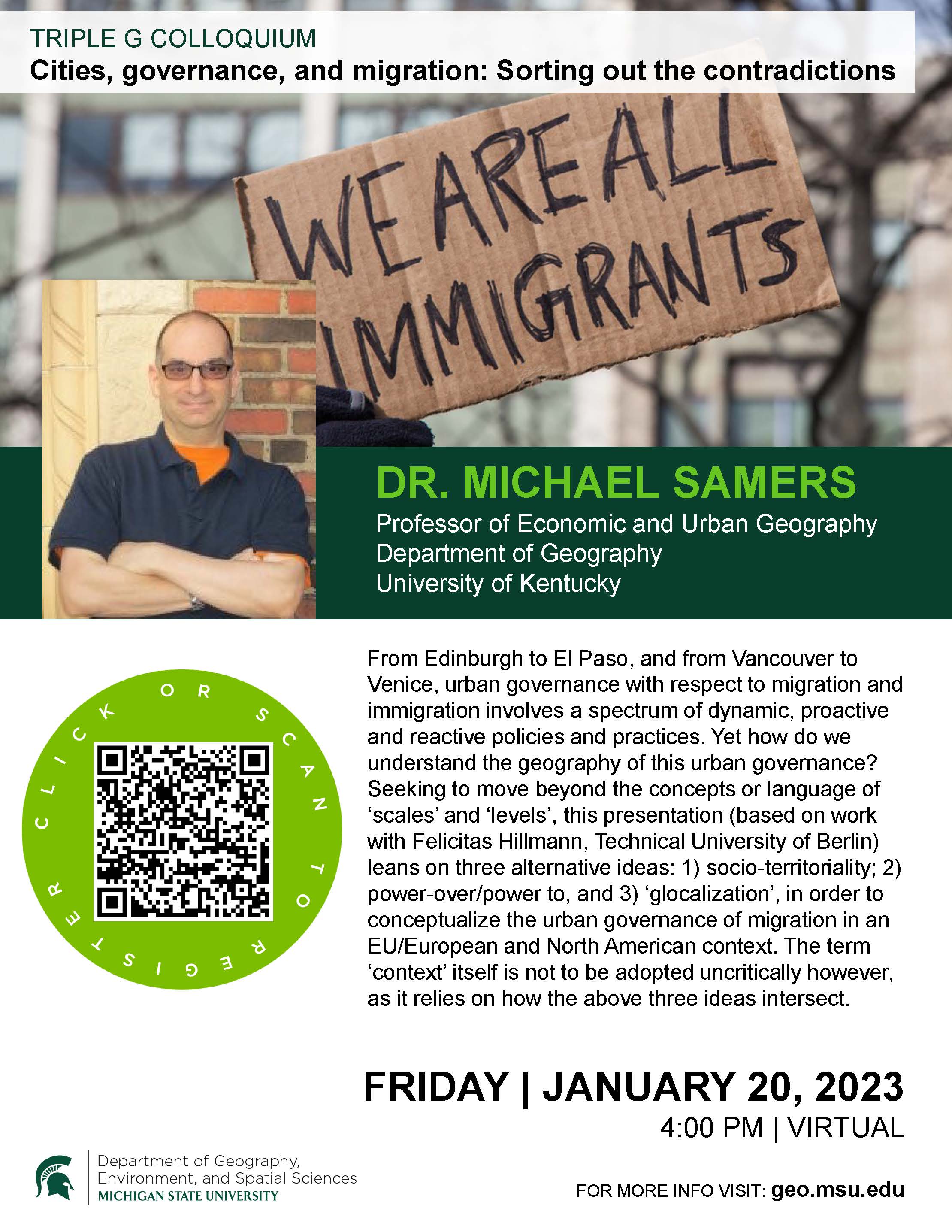Triple G Colloquium| Cities, governance, and migration: sorting out the contradictions | Dr. Michael Samers
Fri, January 20, 2023 4:00 PM at Virtual
 Join us for our first Triple G Colloquium event for the Spring Semester as we welcome Dr. Michael Samers. Dr. Samers is a professor of Economic and Urban Geography with the Department of Geography at the University of Kentucky. He will present "Cities, governance, and migration: sorting out the contradictions."
Join us for our first Triple G Colloquium event for the Spring Semester as we welcome Dr. Michael Samers. Dr. Samers is a professor of Economic and Urban Geography with the Department of Geography at the University of Kentucky. He will present "Cities, governance, and migration: sorting out the contradictions."
Click here to register in advance.
Abstract:
From Edinburgh to El Paso, and from Vancouver to Venice, urban governance with respect to migration and immigration involves a spectrum of dynamic, proactive and reactive policies and practices. Yet how do we understand the geography of this urban governance? Seeking to move beyond the concepts or language of ‘scales’ and ‘levels’, this presentation (based on work with Felicitas Hillmann, Technical University of Berlin) leans on three alternative ideas: 1) socio-territoriality; 2) power-over/power to, and 3) ‘glocalization’, in order to conceptualize the urban governance of migration in an EU/European and North American context. The term ‘context’ itself is not to be adopted uncritically however, as it relies on how the above three ideas intersect.
In light of this framing, we make four arguments: First, we contend that since the millennium, certain combinatory societal processes have prompted urban governments on both continents to shift from a process of settling newcomers into cities and providing policies to avoid tensions or social disruptions, to a more comprehensive pro-active approach. Yet ‘policy failures’, or persistent anti-immigrant sentiment (or both) lend to ambivalent or contradictory urban policies and practices. Second, some of the largest and smallest cities in Europe and North America have repeatedly encountered a range of migration modalities since the 2000s, not simply labor migration. We argue then that this has challenged local civil society actors to take over new responsibilities, in contrast to before the 2000s. Third, new private actors form migration industries help to transform, renew, or devalue specific urban spaces. Fourth, we maintain that migrants themselves continue to be pivotal actors in shaping urban governance. Ultimately, and without relying on Weberian ‘ideal-types’, we seek to understand these policies, practices, and contradictions.


